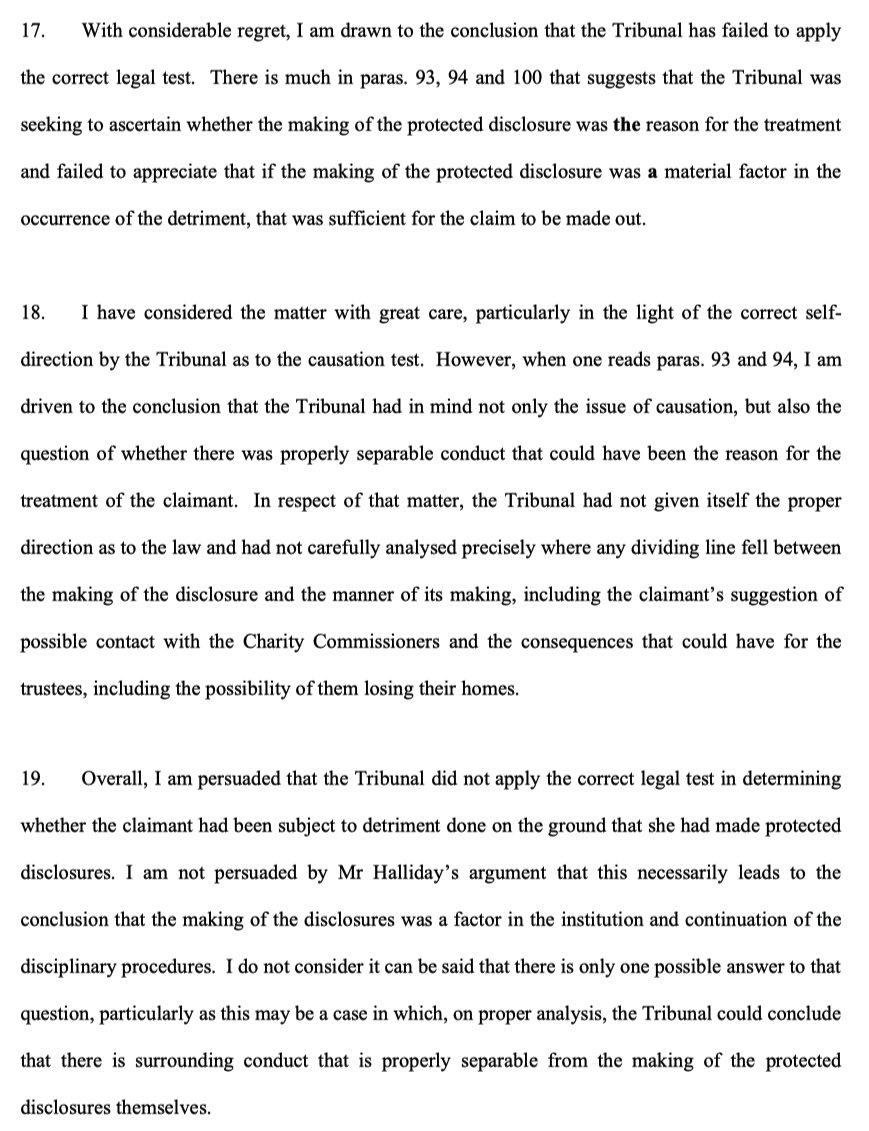
1/ Fitzmaurice v Luton Irish Forum: EAT finding that the ET erred in applying the causative test in a s.47B detriment claim by looking for the reason for detriment rather than material factors influencing the doing of the detrimental act.
bailii.org/uk/cases/UKEAT…
#ukemplaw
bailii.org/uk/cases/UKEAT…
#ukemplaw
2/ F was a welfare caseworker for LIF, which provided support to the Irish community. Disciplinary proceedings followed comments by F about going to the Charity Commission, trustees risking loss of their houses & a comment a Polish colleague being Hitler's henchman. 

3/ F claimed that those proceedings were instigated because she'd made protected disclosures, she resigned & brought ordinary & s.103A automatic unfair dismissal claims, though didn't end up pursuing the latter. F also brought a s.47B detriment claim re the disciplinary process. 

4/ The ET found that the instigation of the disciplinary proceedings wasn't on grounds of F making protected disclosures. F appealed on grounds that the ET erred in law in applying the causative test to the s.47B claim & argued it also fed into the ordinary unfair dismissal claim
5/ The EAT noted the material influence causative test in Fecitt as well as the case law on separability between the making of a protected disclosure & the manner in which it's made (Martin v Devonshire & Panayiotou).
6/ The ET had found that whilst F's comments about potential breach of Charity Commission guidelines & possible consequences for trustees could amount to a protected disclosure, LIF was "much more concerned" with the way F raised it rather than the fact of doing so. 

7/ The EAT noted that of the 3 reasons the ET found for opening disciplinary proceedings, the 2nd was based on potential protected disclosures & noted confusion in the ET's reasoning about whether the comments resulting in the disciplinary were in part protected disclosures. 

8/ Notwithstanding the caution that DPP v Greenberg requires of the EAT where the ET has set out the correct legal test, the EAT in this case felt compelled to find that the ET had sought to ascertain THE reason for the treatment rather than the question of material influence. 

9/ The EAT accepted the possibility that instigating disciplinary proceedings due, in part, to the making of a protected disclosure could give rise to a fundamental breach entitling an employee to terminate & thus remitted the s.47B & s.98 matters back to the ET.
• • •
Missing some Tweet in this thread? You can try to
force a refresh







